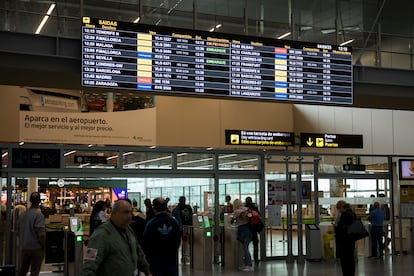
On Thursday morning, Ryanair ground staff at Lavacolla Airport in Santiago de Compostela approached management seeking clarification following reports of the base closure. The written response confirmed the shutdown of the base but did not provide clear guidance regarding the future of the staff. Employees note that they were informed about a reduction in routes and flights, but nothing has been communicated so far about future working conditions. The final closure of the base is scheduled for October 26, coinciding with the transition to the winter timetable.
As a result of this decision, over one million passenger seats will be removed from the schedule, sparking concern among local residents and travelers. According to the CIG trade union, almost a hundred ground staff jobs are at risk. Many employees say they have received support and understanding from passengers affected by flight cancellations, but recognize that the consequences are far more significant for the workers themselves.
Flight crews were informed about the situation at a separate meeting. They were offered transfers to other cities, but some employees are considering resigning. Over the years, many have started families, bought homes, and enrolled their children in schools in Galicia, so the prospect of relocation has come as both unexpected and challenging, especially on the eve of the new school year.
Ryanair began reducing its routes in Galicia two years ago, while competition with Vueling has only intensified. Now, the airline is completely pulling out of Vigo and Santiago, retaining just a handful of routes: Sevilla, Valencia, Lanzarote, Tenerife Sur, and London. Direct flights to Barcelona, Madrid, Dublin, and other cities will be cancelled.
Ryanair management attributes its departure to Aena’s refusal to lower airport fees. Authorities in Santiago and Vigo, along with business representatives and passengers, have criticized the airline’s decision. The mayor of Vigo, Abel Caballero, stated that the city had no plans to renew contracts with the company, while in Santiago, officials emphasize that Aena’s fee increases could negatively affect the development of regional airports.
Passengers accustomed to flying with Ryanair are already looking for alternatives. Some believe that other airlines will fill the gaps left behind, but many residents fear higher prices and reduced access to flights between Galicia and the Canary Islands. For many families and entrepreneurs, this decision is a significant blow, especially for those who live and work between the regions.












